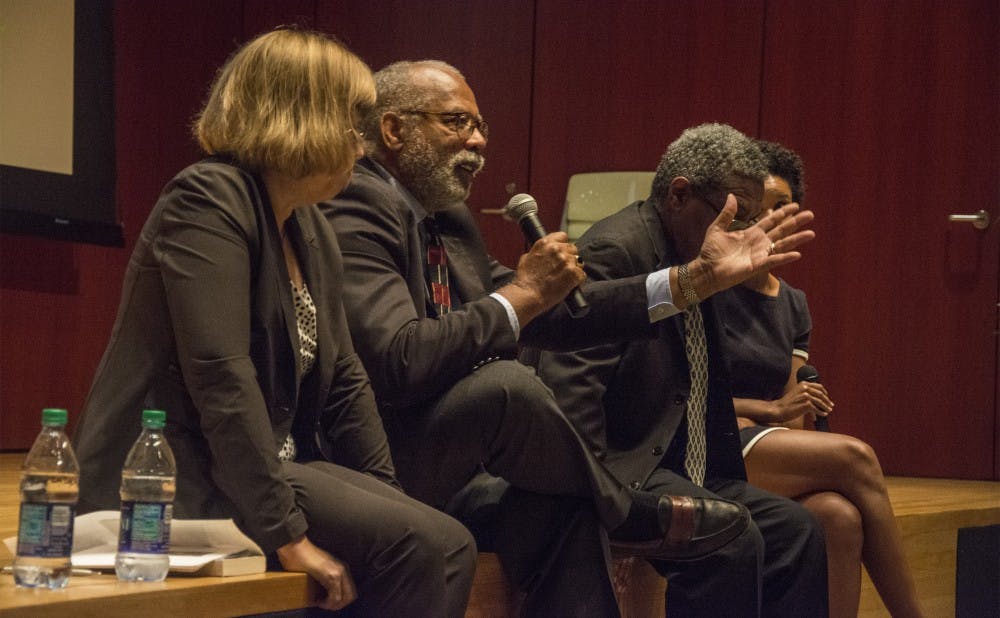Panelists emphasized the importance of empathy in solving racial issues within the criminal justice system, but also noted the lack of student attendance.
The Race, Justice and Empathy panel—held in the Nasher Museum of Art Friday—focused on attorney Bryan Stevenson's novel "Just Mercy," which explores the issues of racial injustice in the legal system and on death row. The memoir was also this year's summer reading book for freshmen, and Stevenson came to campus to talk to students during Orientation Week.
Professors from several different fields contributed to the discussion, including faculty from the Law School, the Divinity School and the Sanford School of Public Policy. Although the panelists initially discussed the impact of music and paintings on how past injustices are perceived, the discussion quickly shifted toward more legal and political concerns.
Instead of debating specific racial issues, the panelists focused on society's collective need to empathize and to care about people who are oppressed and disadvantaged.
The biggest problem concerning racial injustice is not any one specific issue such as mass incarceration or police brutality, said James Coleman, John S. Bradway professor of the practice of law and the co-director of the Wrongful Convictions Clinic. Rather, apathy is a more ubiquitous and less visible threat, he said.
“One of the things we run into is indifference on the parts of everybody in the criminal justice system," he explained. "Not just the police or prosecutors or judges, sometimes even defense lawyers as well, and I’ve felt that that’s the biggest problem with the criminal justice system. Many of the people who are responsible for the rights of the dependent are indifferent to their situations—to even sometimes whether they’re innocent or not.”
Other panelists echoed Coleman's sentiment in the context of the Black Lives Matter movement.
People ought to act upon their beliefs instead of simply holding them as true, said Charles Thompson, a professor of the practice of cultural anthropology. He noted that some people often fail to practice what they preach.
Kathryn Webb Bradley, professor of the practice of law, added it is important to bring both individuality and empathy to bear when discussing race relations.
“What I want to think is that each black life matters, that each life matters,” Webb said. “We need to be able to see each other as individuals and as human beings and seeing that commonality.”
Although many community members attended the event, only about six or seven students were present. Thompson said he was disappointed by the student turnout and explained that it may be because the talk was linked to an art exhibit in the museum.
“The challenge for artists and for museums in general is to reach a diverse audience,” he said. “The idea of having a conversation over art and in response to art is automatically going to draw a certain group of people who feel comfortable in an art museum.”
There was an art exhibit inspired by "Just Mercy" outside the auditorium where the discussion was held, but it was not the featured part of the event.
Thompson said he wished the University had publicized the talk better and done more to encourage student attendance.
However, the students actually in attendance said they gained valuable insights from the discussion.
Freshman Cameron Beach noted that the panel connected with her experience of the presidential election and coming to Duke.
“This conversation is a really important one especially for myself as a freshman and my fellow cohorts as freshmen coming into a university where race relations are really important and not often talked about,” she said. “I would’ve liked to see a greater student representation here because I think it’s an important dialogue to have even though it’s uncomfortable sometimes.”
Get The Chronicle straight to your inbox
Signup for our weekly newsletter. Cancel at any time.

